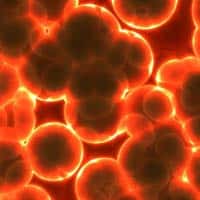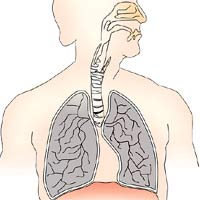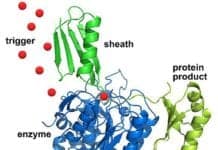
Homeostasis: During the study of life, one of the most important attribute to be aware of is the concept of internal balance or homeostasis.
But what exactly is homeostasis, how does it occur, and why is it important in living organisms?
Find out the answers to these questions below.
Table of Contents
What is Homeostasis?

- Cannon’s definition of the term is solely focused on the ability of the human body to regulate certain factors like temperature and concentration of substances in the body.
- By definition, homeostasis refers to the characteristic of a system that maintains the balance and stability between the internal and external environment.
![]()
Examples of Homeostasis
Almost all living organisms widely exhibit homeostasis. It is constantly happening which is almost impossible to find any organism that does not perform it. The following are just a few examples from the human body and our ecosystems.
1. Maintenance of Body Temperature
 One of the most common examples of homeostasis is the regulation of body temperature[4]. In humans, the normal range falls on 37 degrees Celsius or 98. 6 degrees Fahrenheit. In order to maintain this, the body controls temperature either by producing heat or releasing excess heat. When the body temperature goes beyond 98.6F, the person would get fever and if it drops below this limit, the person would get hypothermia.
One of the most common examples of homeostasis is the regulation of body temperature[4]. In humans, the normal range falls on 37 degrees Celsius or 98. 6 degrees Fahrenheit. In order to maintain this, the body controls temperature either by producing heat or releasing excess heat. When the body temperature goes beyond 98.6F, the person would get fever and if it drops below this limit, the person would get hypothermia.
![]()
2. Maintenance of Glucose Level
 A special type of sugar in our bloodstream called Glucose[5] and it needs to be level for the person to be healthy. If this sugar level gets too high, then the pancreas releases a hormone called insulin to balance the Glucose in the bloodstream. On contrast, if the sugar level drops too low, then stored Glycogen (form of sugar) in liver and muscles get converted into Glucose to maintain the optimal balance.
A special type of sugar in our bloodstream called Glucose[5] and it needs to be level for the person to be healthy. If this sugar level gets too high, then the pancreas releases a hormone called insulin to balance the Glucose in the bloodstream. On contrast, if the sugar level drops too low, then stored Glycogen (form of sugar) in liver and muscles get converted into Glucose to maintain the optimal balance.
![]()
3. Protection From infection
 The immune system[6] kicks in to maintain the homeostasis when a rogue virus or bacteria gets into the body; it fights and protects from getting infections before they make the person ill.
The immune system[6] kicks in to maintain the homeostasis when a rogue virus or bacteria gets into the body; it fights and protects from getting infections before they make the person ill.
![]()
4. Maintenance of Blood Pressure
 The healthy blood pressure (BP) for humans is 120/80 (120 – systolic pressure / 80 – diastolic pressure). If the BP is too high, then brain sends signals to heart to slow down the heart pumping to normalize the pressure. Similarly, if the BP is too low, then the heart compensates by increasing the pressure in arteries to keep the balance. This whole orchestration is done via the nervous and endocrine systems.
The healthy blood pressure (BP) for humans is 120/80 (120 – systolic pressure / 80 – diastolic pressure). If the BP is too high, then brain sends signals to heart to slow down the heart pumping to normalize the pressure. Similarly, if the BP is too low, then the heart compensates by increasing the pressure in arteries to keep the balance. This whole orchestration is done via the nervous and endocrine systems.
![]()
5. Maintenance of Fluid Volume
 Homeostasis is also important to regulate fluid (i.e. water) as well as the concentration of ions in the body. In animals, the main organs assigned for this task are the kidneys. Aside from the said functions, the kidney also maintains homeostasis by holding essential substances (e.g. sugars and proteins) so they are not flushed out of the body.
Homeostasis is also important to regulate fluid (i.e. water) as well as the concentration of ions in the body. In animals, the main organs assigned for this task are the kidneys. Aside from the said functions, the kidney also maintains homeostasis by holding essential substances (e.g. sugars and proteins) so they are not flushed out of the body.
![]()
6. Maintenance of Breathing Patterns
 Breathing is an involuntary action and the nervous system helps to keep the homeostasis by ensuring the body gets its most essential oxygen (O2) by proper breathing patterns.
Breathing is an involuntary action and the nervous system helps to keep the homeostasis by ensuring the body gets its most essential oxygen (O2) by proper breathing patterns.
![]()
7. Removal of Wastes/Toxins
 The lymphatic system[7] (network of tissues and organs to help get rid of toxins from the body) maintains homeostasis by getting rid of toxins such as urine, feces, CO2, bile, sweat and worn out cells from the body.
The lymphatic system[7] (network of tissues and organs to help get rid of toxins from the body) maintains homeostasis by getting rid of toxins such as urine, feces, CO2, bile, sweat and worn out cells from the body.
![]()
8. Regulation of Light Entry in Eyes
 The way Homeostasis is maintained by the eyes is by contracting the pupil when excess light enters; on contrast, the pupil expands when exposed to darkness to get a sense of the visual.
The way Homeostasis is maintained by the eyes is by contracting the pupil when excess light enters; on contrast, the pupil expands when exposed to darkness to get a sense of the visual.
![]()
9. Stable Population in An Ecosystem
 In an ecological perspective[9] , an ecosystem maintains equilibrium in a different way. An ecosystem in homeostasis occurs when there is a relatively stable number of population of organisms. An example of this occurs when a huge number in the population gets wiped out due to natural disasters of anthropogenic activities.
In an ecological perspective[9] , an ecosystem maintains equilibrium in a different way. An ecosystem in homeostasis occurs when there is a relatively stable number of population of organisms. An example of this occurs when a huge number in the population gets wiped out due to natural disasters of anthropogenic activities.
![]()
Importance of Homeostasis
Based from the aforementioned examples, you may probably already have understood how important homeostasis is. Living organisms need to maintain homeostasis constantly in order to properly grow, work, and survive. In general, homeostasis is essential for normal cell function, and overall balance.
- In the human body, chemicals like Oxygen (O2), Carbon dioxide (CO2) and digested food enter and exit the cells using the concept called diffusion and osmosis. For this process to function properly, homeostasis helps our body to keep both water and salt balance level.
- Enzymes in the cell help in the speedy chemical reactions to order to keep the cells alive but these enzymes need to be in an optimal temperature to function properly. Again, homeostasis plays a crucial role in maintaining a constant body temperature (37C/98.6F) for enzymes to do their jobs.
- Mechanisms to attain homeostasis are stable as they need to resist any change that happens within and outside the organism’s environment. These mechanisms vary depending on the individual and may either be positive or negative feedback.
![]()
It is important to note that homeostasis occurs naturally when a system is stable and functions correctly. This can be achieved by continuously making systems work together in harmony.
![]()


















This is so interesting